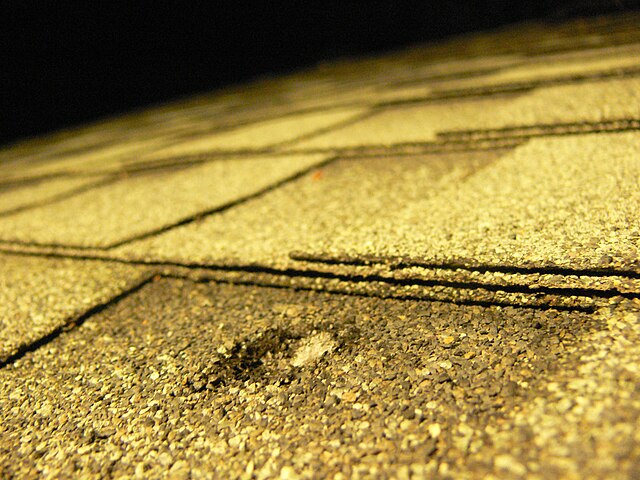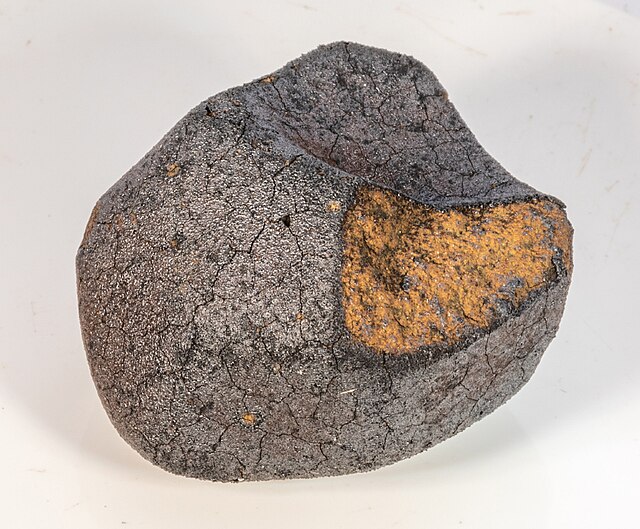Ernst Florens Friedrich Chladni was a German physicist and musician. His most important work, for which he is sometimes labeled as the father of acoustics, included research on vibrating plates and the calculation of the speed of sound for different gases. He also undertook pioneering work in the study of meteorites and is regarded by some as the father of meteoritics.
Ernst Chladni
Martin Chladni, Ernst Chladni's grandfather
Title page of a 1787 copy of "Entdeckungen über die Theorie des Klanges"
Chladni figure on a rectangular plate supported in center
A meteorite is a rock that originated in outer space and has fallen to the surface of a planet or moon. When the original object enters the atmosphere, various factors such as friction, pressure, and chemical interactions with the atmospheric gases cause it to heat up and radiate energy. It then becomes a meteor and forms a fireball, also known as a shooting star; astronomers call the brightest examples "bolides". Once it settles on the larger body's surface, the meteor becomes a meteorite. Meteorites vary greatly in size. For geologists, a bolide is a meteorite large enough to create an impact crater.
The 60-tonne, 2.7 m-long (8.9 ft) Hoba meteorite in Namibia is the largest known intact meteorite.
NWA 859 iron meteorite showing effects of atmospheric ablation
The impact pit made by a 61.9-gram Novato meteorite when it hit the roof of a house on 17 October 2012.
Meteorite fallen near Flensburg in 2019.








